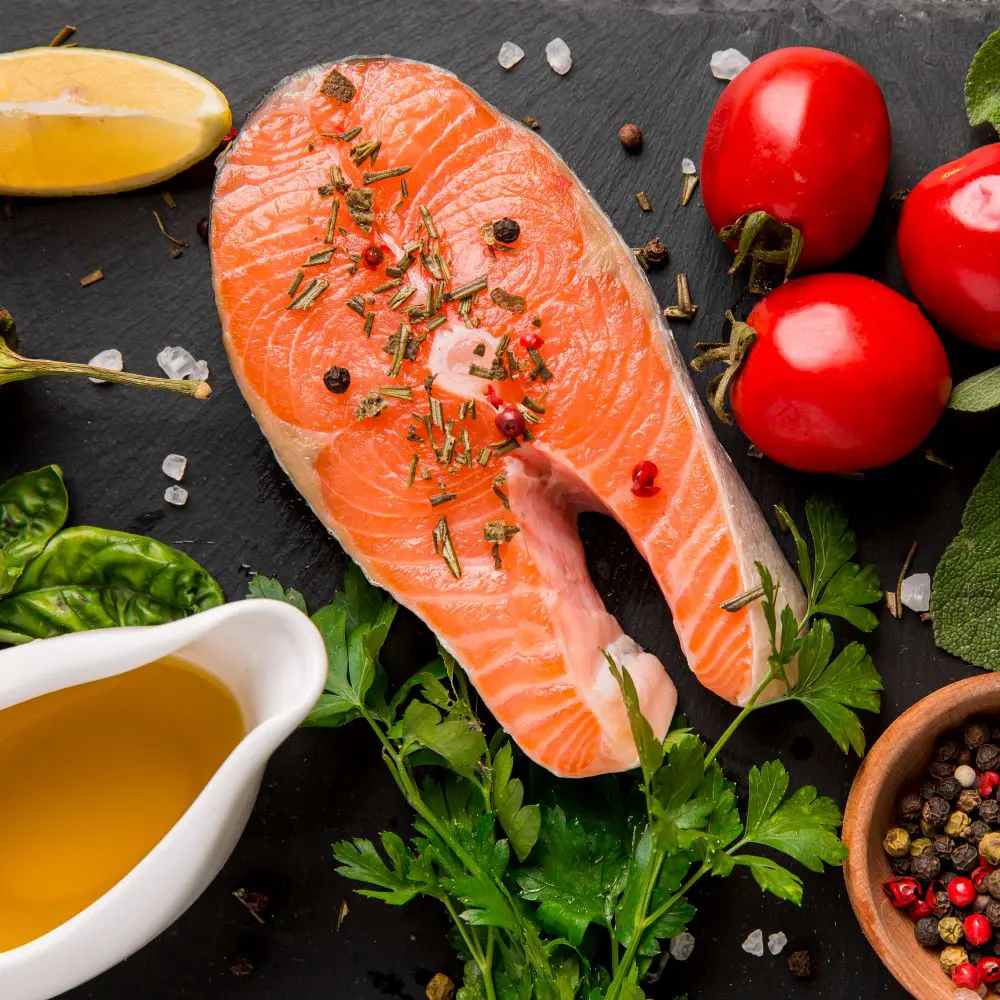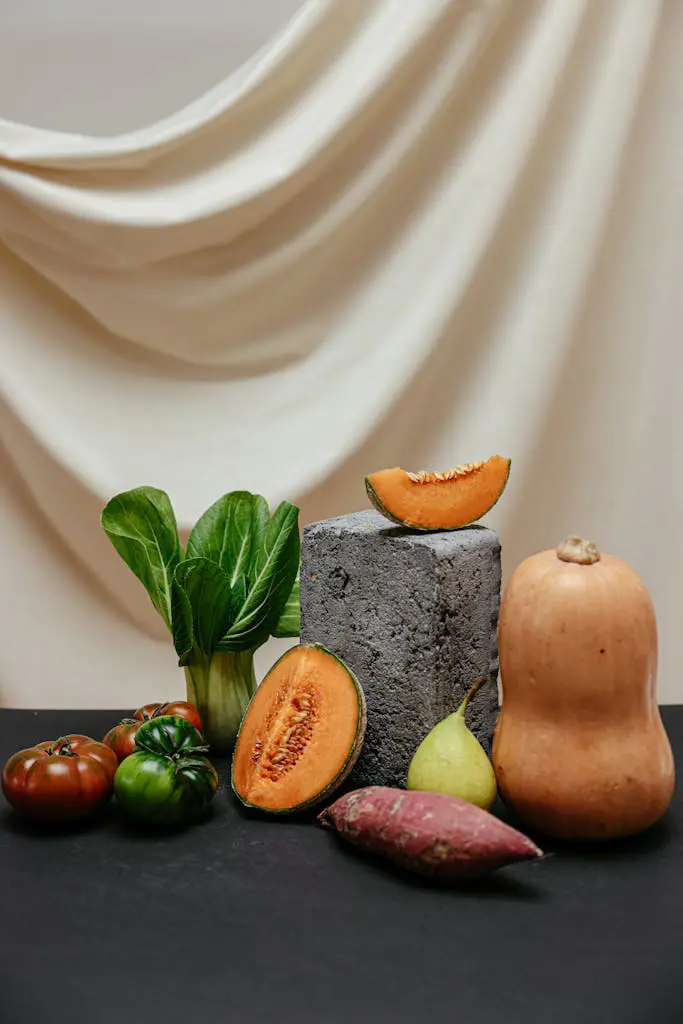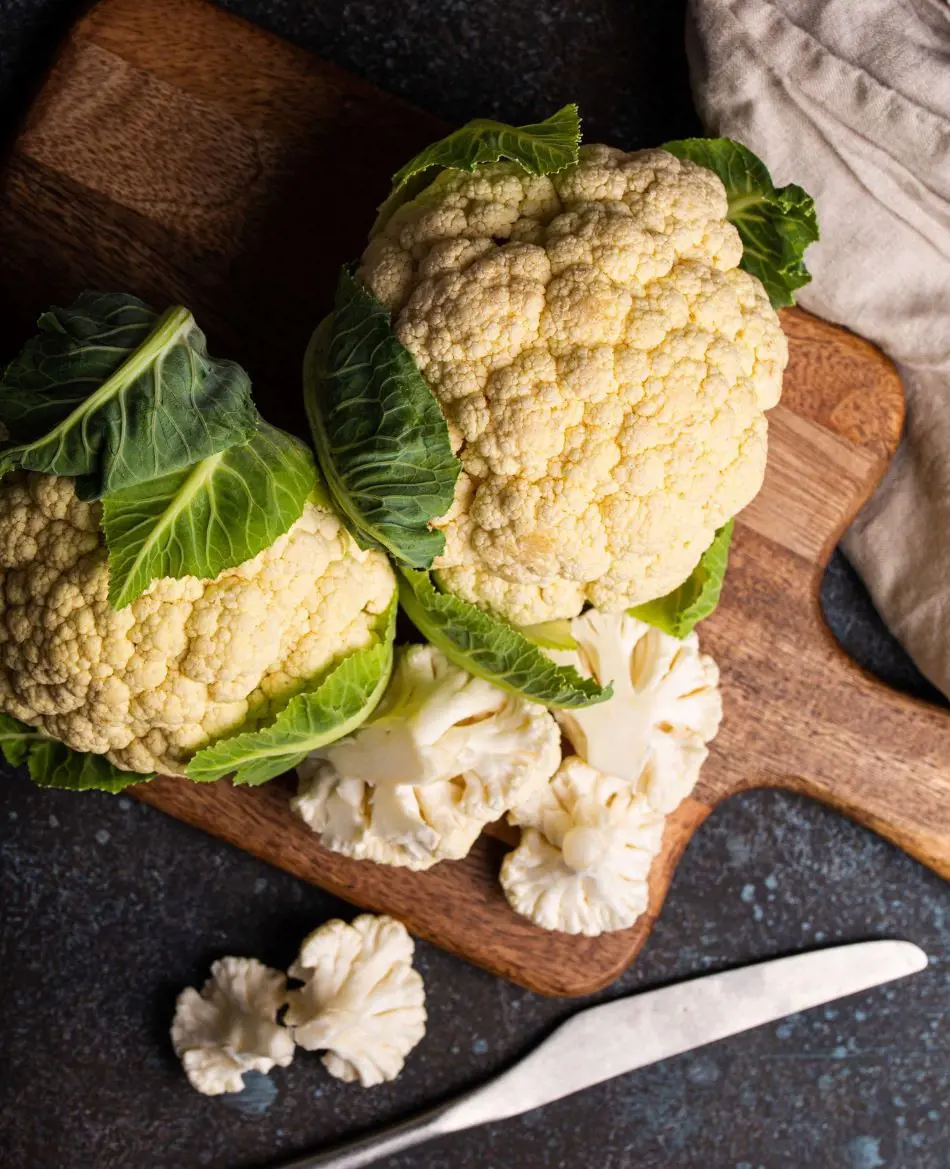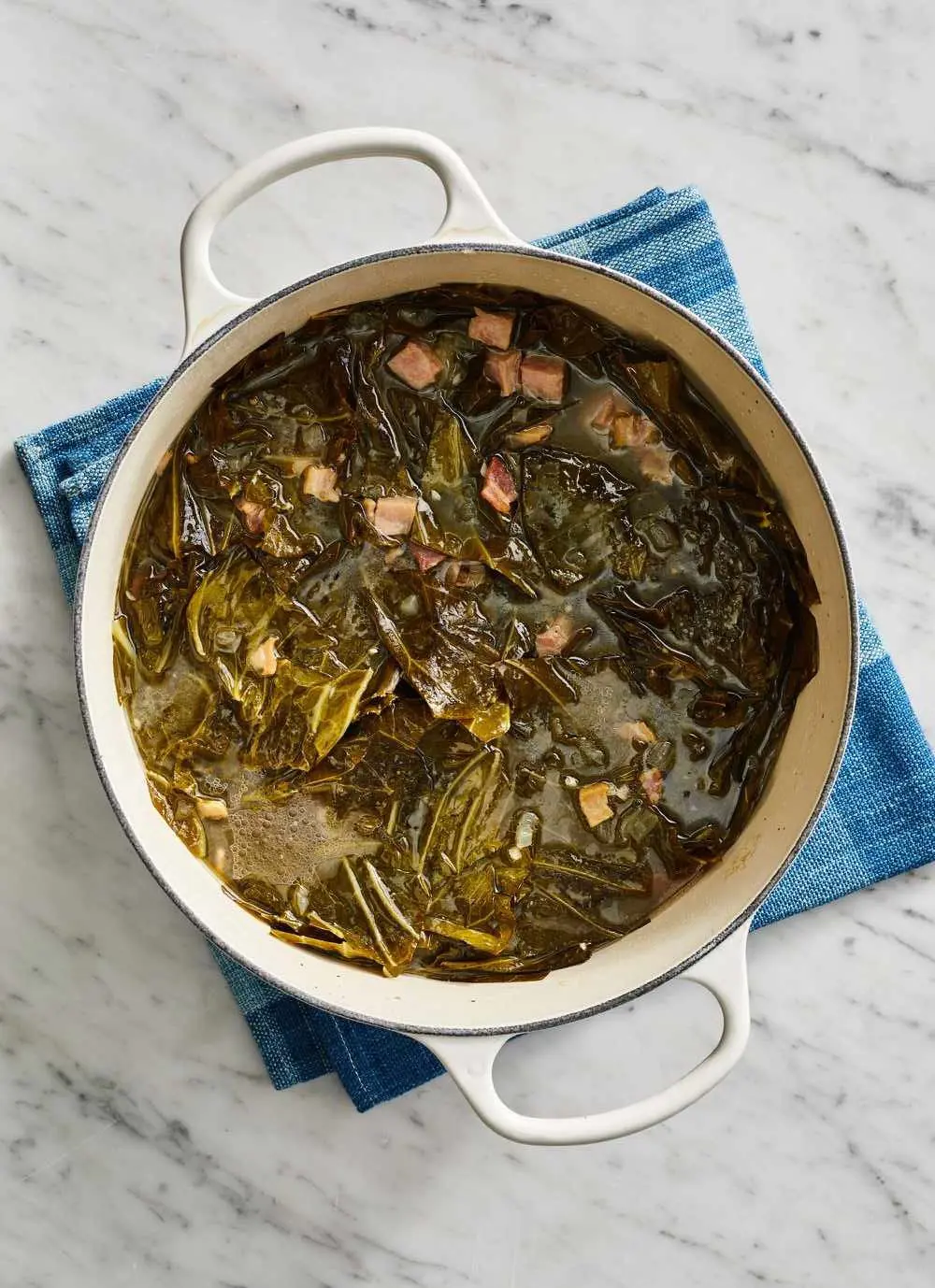Jicama Nutrition and Benefits For Your Health
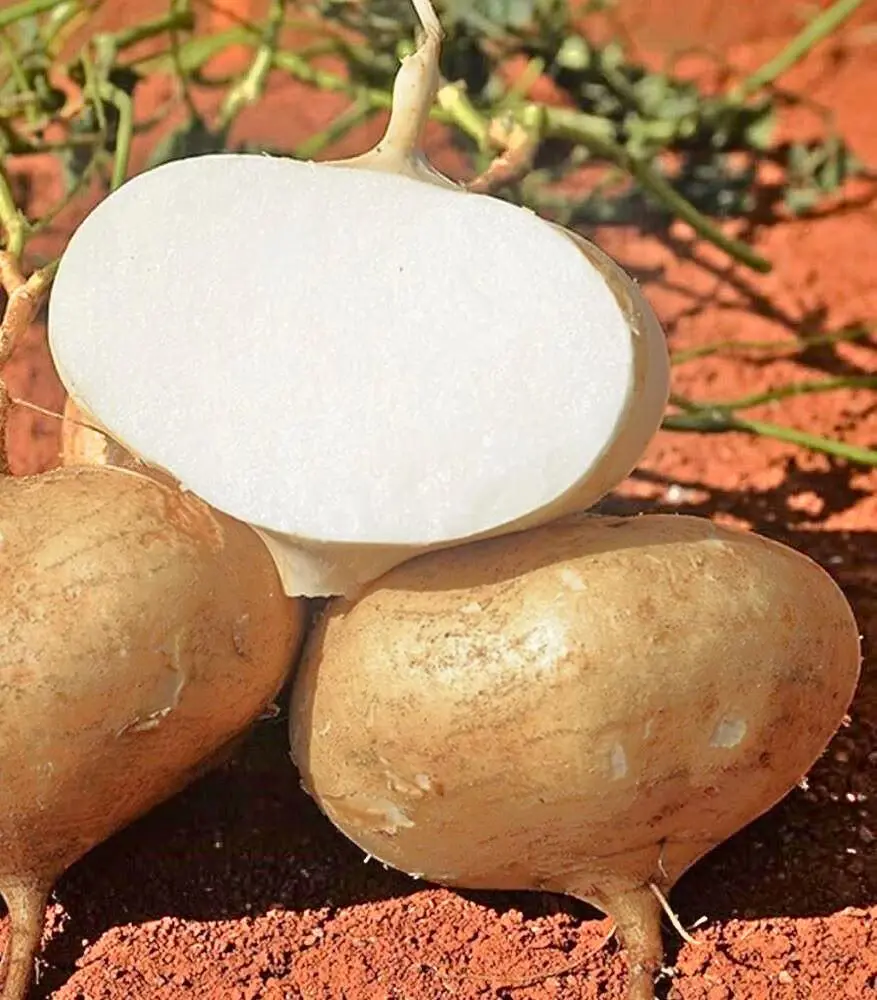
Jicama is a is a root vegetable native to Mexico and Central America. Filled with a crunchy texture and a mildly sweet flavor, it has become a versatile addition to various dishes.
Jicama is a nutritional powerhouse, packed with several essential nutrients that contribute to overall health. Essentials nutrients like dietary fiber and vitamin C make it an ideal choice for aiding bodily functions like digestion, bowel movements, and immunity.
Jicama Nutrition

A versatile root vegetable native to Mexico, Jicama has a crisp texture and mildly sweet flavor. It offers a low-calorie, high-fiber option packed with vitamin C, potassium, and antioxidants.
Jicama's dietary fiber supports digestive health, while its low glycemic index makes it ideal for managing blood sugar levels. Enjoyed raw or cooked, this vegetable adds a refreshing crunch to salads, salsas, and fries.
Nutritional Content
- Calories: 38 kcal
- Water: 90.07 g
- Protein: 0.72 g
- Fat: 0.09 g
- Carbohydrates: 8.82 g
- Dietary Fiber: 4.9 g
- Sugars: 1.8 g
Vitamins:
- Vitamin C: 20.2 mg
- Thiamin (Vitamin B1): 0.02 mg
- Riboflavin (Vitamin B2): 0.03 mg
- Niacin (Vitamin B3): 0.2 mg
- Pantothenic acid (Vitamin B5): 0.19 mg
- Vitamin B6: 0.04 mg
- Folate: 12 µg
- Vitamin E: 0.46 mg
- Vitamin K: 0.3 µg
Minerals:
- Calcium: 12 mg
- Iron: 0.6 mg
- Magnesium: 12 mg
- Phosphorus: 18 mg
- Potassium: 150 mg
- Sodium: 4 mg
- Zinc: 0.16 mg
- Copper: 0.04 mg
- Manganese: 0.06 mg
Other Compounds:
- Beta-carotene: 1 µg
- Lutein + Zeaxanthin: 0 µg
1. Calories
Jicama is a low-calorie vegetable, with only 38 calories per 100 grams. The majority of its weight comes from water (about 90%), contributing to its low-calorie content.
Additionally, it contains 8.82 grams of carbohydrates, including 4.9 grams of dietary fiber, which aids in digestion and promotes a feeling of fullness. The minimal amount of fat (0.09 grams) and protein (0.72 grams) also contribute to its low-calorie count.
2. Protein
Jicama's nutritional values suggest a modest amount of protein, about 0.72 grams per 100 grams. These proteins consist of various amino acids, which are the building blocks of proteins in the body.
The amino acids derived from the protein are essential for various bodily functions, including the repair and growth of tissues, maintenance of immune function, and more. While jicama's protein content is relatively low, it can complement a diet when combined with other protein-rich foods.
3. Vitamins
Jicama is a nutritious vegetable rich in vitamins that contribute to overall health. It is particularly high in Vitamin C, with 20.2 mg per 100 grams. Vitamin C is a powerful antioxidant that boosts the immune system, promotes skin health, and aids in the absorption of iron.
According to Jicama nutrition information, the vegetable also contains small amounts of several B vitamins, including thiamin (B1), riboflavin (B2), niacin (B3), and vitamin B6. These B vitamins are crucial in energy metabolism, brain function, and red blood cell production.
4. Minerals
The Mexican vine plant contains 12 mg of calcium per 100 grams, which is vital for strong bones and teeth. Similarly, 0.6 mg of iron supports the production of hemoglobin, necessary for oxygen transport in the blood.
Jicama also provides 18 mg of phosphorus, 12 mg of magnesium, and 150 mg of potassium. These minerals are vital in regulating fluid balance, muscle contractions, and nerve signals. Together, these jicama nutrients support various physiological functions, promoting overall well-being.
Jicama Health Benefits
A highly-nutritious vegetable, jicama is beneficial for people of all ages. Just make sure that the inedible parts (skin, stem, leaves, and seeds) are properly removed as these contain rotenone, a natural insecticide.
Some of the major health benefits of the jicama vegetable are explained below:
1. Supports Weight Management
Regularly consuming jicama can aid in maintaining a healthy weight. With a significant water content, the vegetable serves as a satisfyingly crunchy and hydrating snack without contributing to excessive calorie intake.
Additionally, the fiber in jicama slows down the digestion and absorption of carbohydrates, leading to more stable blood sugar levels and reduced cravings for high-calorie foods. By incorporating jicama into meals or snacks, you can increase fiber intake and potentially consume fewer calories overall.
Overall, the weight management ability of jicama can be attributed to its:
- Low-calorie content
- High-fiber content
- Low-glycerine index
- Hydrating properties
- Nutrient density
2. Aids In Digestion
The potato-like vegetable offers numerous benefits for digestion, evidenced by the jicama nutritional information. Fiber, both soluble and insoluble, are crucial in promoting digestive health.
Insoluble fiber adds bulk to stool, aiding in its smooth passage through the digestive tract. This helps in preventing constipation and promoting regular bowel movements.
Additionally, jicama's high water content softens stool and makes it easier to pass. This hydration also helps lubricate the digestive system, facilitating the movement of food through the intestines.
3. Boosts Immunity
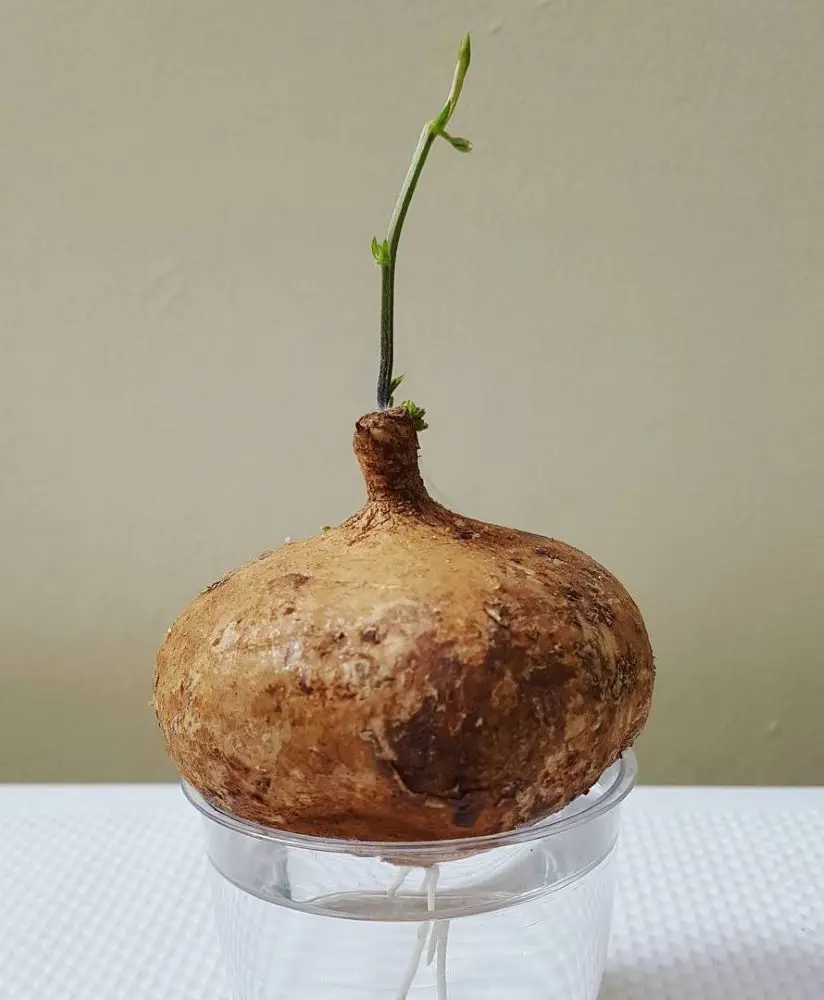
Jicama's ability to boost immunity stems from its rich vitamin C content. Consisting of 20.2 mg per 100 grams, Vitamin C is a potent antioxidant that supports the immune system by enhancing the production and function of white blood cells. The WBCs, in turn, defend the body against infections.
To preserve and maximize the intake of Vitamin C, follow these measures:
- Eat raw or minimally processed to retain its maximum vitamin content. Cooking can lead to some loss of this nutrient.
- Store in a cool, dry place away from direct sunlight to prevent vitamin C degradation.
- Minimize exposure to air by cutting into slices or cubes just before consuming.
- Combine with other vitamin C-rich foods like citrus fruits, berries, or bell peppers.
- If cooking jicama, use methods like steaming or blanching instead of prolonged boiling.
4. Hydration
Jicama's water content ranges from 85% to 90% of its total weight. This means that a typical jicama plant contains a significant amount of water.
Moreover, the fruit also contains electrolytes like potassium and sodium, which helps in maintaining fluid balance and hydration in the body. Potassium regulates cellular fluid levels, while sodium maintains proper fluid distribution in and out of cells.
5. Promotes Heart Health
The North American plant contains adequate amounts of potassium, a mineral important for healthy blood pressure levels. Regular potassium intake counteracts the effects of sodium, promotes vasodilation, and reduces the risk of hypertension.
Similarly, jicama fibers are beneficial in retaining healthy blood lipid levels and reducing the risk of plaque buildup in arteries. It's important to introduce jicama gradually into the diet and drink plenty of water to minimize potential side effects.
These are some common heart conditions that benefit from the usage of jicama:
- Hypertension
- High Cholesterol
- Atherosclerosis
- Arrhythmias
- Heart Disease
6. Cell Protection

Antioxidants in jicama protect cells from damage caused by free radicals, unstable molecules that can lead to oxidative stress and cell damage. Antioxidants neutralize free radicals by donating electrons, thereby preventing them from causing harm to cellular structures such as DNA, proteins, and lipids.
Moreover, antioxidants found in jicama, such as vitamin C, contribute to the repair of damaged cells by promoting collagen synthesis and supporting tissue regeneration.
In jicama, antioxidants like vitamin C, along with other phytochemicals such as flavonoids and polyphenols, work together to protect the delicate cells. These nutrients work synergistically to combat oxidative stress and promote overall health and well-being.
7. Regulates Blood Sugar Levels
The plant supports in regulating blood sugar levels primarily through its low glycemic index (GI). The glycemic index calculates how quickly a carbohydrate-containing food raises blood sugar levels after consumption.
Jicama has a low GI due to its high fiber content, particularly soluble fiber. When consumed, this fiber forms a gel-like substance in the digestive tract, slowing the breakdown of carbohydrates and the subsequent release of glucose into the bloodstream.
The slow and steady release of glucose helps prevent rapid spikes in blood sugar levels. This makes jicama a suitable option for individuals looking to manage their blood sugar levels, including those with diabetes or insulin resistance.
8. Maintains Strong Bones
Jicama serves as a common source of calcium that contribute to development of strong bones during growth stages. Calcium is a vital mineral required for bone formation, and adequate intake is essential for maintaining bone density and strength.
While jicama is not as rich in calcium as dairy products or leafy greens, it still contains a moderate amount (12 mg per 100 grams). Regular consumption of this vegetable can complement other calcium-rich foods in the diet.
9. Supports Healthy Skin

As mentioned above, jicama contains vitamin C, which in turn contributes to collagen synthesis. Collagen is a protein essential for skin elasticity and firmness. At the same time, vitamin C also helps protect the skin from oxidative stress and UV damage.
Although jicama's nutrient content and hydrating properties can support overall skin health, it is unlikely to repair deeply damaged skin on its own. Still, regular consumption of jicama can potentially aid in the repair process when combined with other skincare practices and treatments.
Additionally, topical application of jicama extract or its juice may provide some benefits for the skin, such as hydration and antioxidant protection.
10. Improves Blood Circulation
Iron is a significant mineral required for the production of hemoglobin. Hemoglobin refers to protein in red blood cells that transports oxygen throughout the body. Adequate iron consumption supports the efficient delivery of oxygen to cells and tissues.
While jicama is not exceptionally high in iron compared to other foods, it still provides a moderate amount (0.6 mg per 100 grams). To maximize iron intake from jicama, pair it with vitamin C-rich foods, as vitamin C enhances iron absorption.
11. Boosts Energy Levels
Jicama enhances the body energy level through their nutrient composition and role in energy metabolism. While jicama itself doesn't provide a direct energy boost, its nutrient profile supports the body's energy production processes.
The vegetable is a good source of B vitamins, including thiamin (B1), riboflavin (B2), niacin (B3), and vitamin B6. These vitamins play key roles in converting carbohydrates, fats, and proteins from food into usable energy through cellular metabolism.
B vitamins act as cofactors for various enzymes involved in energy production pathways, such as glycolysis and the citric acid cycle. By facilitating these metabolic processes, B vitamins help extract energy from macronutrients and convert it into adenosine triphosphate (ATP), the body's primary energy currency.
Recent posts
Nutrition
Nutrition
Licorice Root: Benefits And Uses
You can spell it liquorice or licorice; this herb or root has been in use for centuries in most medicinal applications, as a natural sweetener and to enhance flavors. Regarding its origins, it comes from the root of the "Glycyrrhiza galbre" plant and...
Nutrition
Is Salmon Good For You? Nutritional Facts and Benefits
Salmon fish is a staple diet throughout the world, popular as a super food for its nutrients. Whether savored in sushi, poached, grilled, roasted, or pan-fried, salmon offers minerals and vitamins that contribute to healthy bodily functions. In addit...
Nutrition
25 Smoked Salmon Recipes That You Will Enjoy
Salmon is a silver-colored fish that is loaded with many nutrients, vitamins, and omega-3 fatty acids. Smoked Salmon is better for improving your health and reducing the risk of cancer, heart-related diseases, fights inflammation, reduces anxiety and...
Nutrition
Are Sausages Healthy? Nutrition And Health Benefits
Sausages are tasty in an addictive way, making them one of the most popular foods worldwide. You may have enjoyed this convenient food often, whether on a bun with mustard or grilled on a barbecue, the simple preparation methods are what makes its co...
Nutrition
20 Vegetables That Are Rich In Iron
Iron is essential for our bodies to function well. When we don't get enough iron, we often feel weak and tired. It's important to address iron deficiency early by eating the right foods. Fortunately, many vegetables are rich in iron and can help prev...
Nutrition
15 Cauliflower Nutrition Facts And Health Benefits
Cauliflower, a cruciferous vegetable, resembles a white variation of its relative, broccoli. Like broccoli, it has closely bunched florets attached to a thick core, often surrounded by a few leaves. While white is the most common color, cauliflower i...

